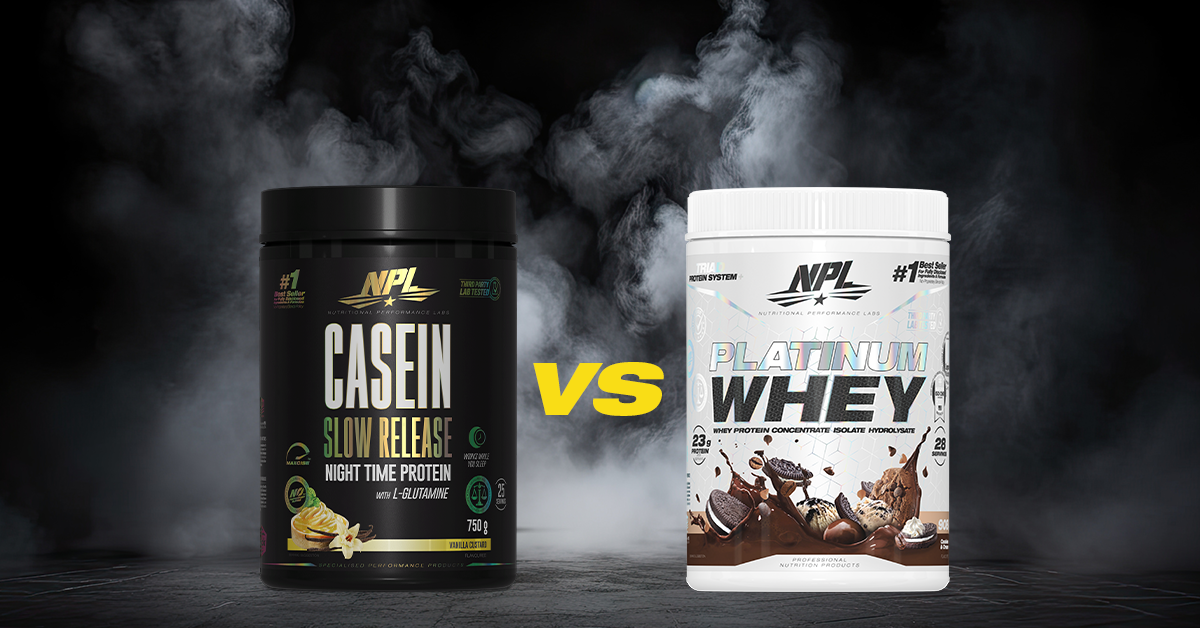Casein vs. Whey Protein

Casein vs. Whey Protein
If you were to split milk into its main components, you’d be left with whey protein and casein protein, both popular choices for boosting protein intake.
While whey protein is well-known for its benefits, casein also offers its own unique advantages. So, which is best for muscle growth—casein, whey or a combination of both?
Understanding Muscle Growth & Breakdown
Muscle protein synthesis (MPS) and muscle protein breakdown (MPB) are metabolic processes that vary throughout the day based on your protein intake, meal timing and intervals between meals.
In simple terms, MPS is the process of building new muscle proteins, while MPB involves breaking down existing muscle proteins. To build or maintain lean muscle, your goal should be to minimise muscle breakdown and maximise muscle synthesis.
Understanding these processes helps explain how whey and casein proteins support muscle growth and recovery in different ways.
Whey Protein
Whey protein is known for its fast absorption rate, making it a great choice for post-workout recovery.
After a tough workout, your muscles crave a quick supply of amino acids to jumpstart, protein synthesis and muscle repair. Whey protein, particularly fast-acting 100% Whey Protein Isolate, delivers nutrients rapidly, supplying muscle cells with amino acids for up to 2 hours after ingestion.
Casein Protein
On the other hand, casein protein is known for its slow absorption by the body, delivering a steady flow of amino acids to the muscle cells for up to 7 hours.
That’s why it’s often taken before bed, to cover the long stretch when you’re not eating and to help minimise muscle breakdown. As you sleep, casein keeps feeding your muscles, helping you maintain those hard-earned gains and sustain muscle protein synthesis throughout the night.
Casein Night Time Protein also contains glutamine to support recovery and promotes positive nitrogen retention for an optimal anabolic environment.
Which Protein Suits Your Goals?
Choosing between casein and whey depends on your specific needs and training schedule. For immediate post-workout recovery, whey protein is the go-to option. However, for nighttime muscle maintenance and recovery, casein protein is the superior choice.
Incorporating both into your supplement routine can provide around-the-clock muscle support, ensuring you get the best of both worlds, fast recovery when you need it and sustained nourishment while you rest.






